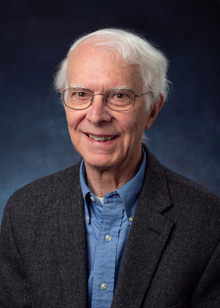

Professor Ford is an experimentalist in elementary particle physics. He currently collaborates in the Compact Muon Solenoid (CMS) experiment operating at the European Organization for Nuclear Research (CERN) laboratory in Switzerland. The goals of this research are to elucidate the elementary interactions of quarks and leptons. The highlight to date is the 2012 discovery jointly by CMS and ATLAS of the Higgs boson. Working in collaboration with CU faculty colleagues and the group's undergraduate and graduate students and postdocs he investigates heavy-flavored multi-jet signatures for new particles, such as those predicted by the Supersymmetry theory. The group's detector efforts center mainly on tracking devices, specifically the CMS silicon pixel and strip detectors. Physics interests over the years include weak interaction properties as measured by neutrino interactions, and by the lifetimes, branching fractions, and decay dynamics of weakly decaying particles.
Professor Ford is a recipient of the 2006 W. K. H. Panofsky Prize, awarded by the American Physical Society for the discovery of the unexpectedly long lifetime of the bottom quark. This property of the bottom quark enabled subsequent discoveries, including the top quark, CP violation in the B meson system, properties of the Higgs boson, and many searches for new physics Phenomena.
Selected Publications